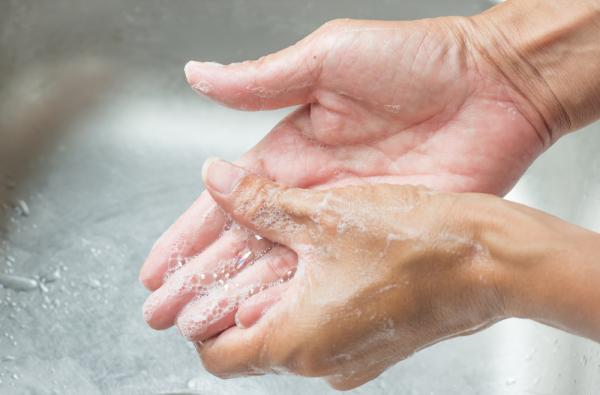Hot water must be used in order to wash your hands effectively.
Right?
That's a given, your mom told you so from the age of 3 and everyone knows it, correct?
Everyone may know it, but now we're learning that it's not necessarily true, according to health researchers from Rutgers University seeking to determine the proper water temperature(s) that are effective in killing germs and harmful bacteria. And according to results of a study announced this week, the temperature of the water doesn't matter. What does matter is using soap, and washing thoroughly for 10 seconds.
Now, you may be thinking: "So what? Hot. Cold. What's the big deal?"
No big deal, just several smaller deals. But all of them are science-based – with two providing the potential to prevent illness and save energy.
Here are the basics of the research: After having their hands exposed to "high levels of harmless bacteria," over the course of the six-month study, the 20 participants washed in three temperatures: 60-degrees, 79-degrees and 100-degrees. During their multiple washings the 10 men and 10 women also used three different amounts of hand soap – 1/2 milliliter, 1 ml and 2ml – to determine whether one volume was more effective than the others.
In the end, water temperature had no effect on cleanliness. And using twice as much soap, or four times as much as the 1/2 ml amount, also made no difference.
"People need to feel comfortable when they are washing their hands but as far as effectiveness, this study shows us that the temperature of the water used didn't matter," stated Prof. Donald Schaffner in a statement released by the university.
So how can these results be applied?
First of all, they can correct longstanding misperceptions about routine hygiene practices, since hot water is not required. And as far as being a "better" choice than cold water, strictly from a standpoint of being a more effective cleaning method, that's not true. If you prefer using warm or hot water, because it feels better on your hands, that's fine. But the Rutgers team says it doesn't help make your hands cleaner.
 Secondly, the proper and most effective way to wash one's hands is a prominent issue for the food service industry, and specifically those who handle the food we eat. (photo courtesy: Shutterstock) For example, if warm or hot water is temporarily unavailable or inaccessible (for whatever reason), cold water will work just fine, and the absence of hot water might encourage workers to skip this important task. Employers making sure food workers are made aware that cold water is adequate can potentially benefit all restaurant patrons.
Secondly, the proper and most effective way to wash one's hands is a prominent issue for the food service industry, and specifically those who handle the food we eat. (photo courtesy: Shutterstock) For example, if warm or hot water is temporarily unavailable or inaccessible (for whatever reason), cold water will work just fine, and the absence of hot water might encourage workers to skip this important task. Employers making sure food workers are made aware that cold water is adequate can potentially benefit all restaurant patrons.
"This is important because the biggest public health need," said Jim Arbogast, a VP with GOJO, the inventors of Purell, "is to increase handwashing or hand sanitizing by foodservice workers and the public before eating, preparing food and after using the restroom."
And finally, knowing that cold water will do the job just as well, eliminating the need to use hot water saves energy and can cut down on heating costs in restaurants and at home.
In fact, in the FDA's "Retail Food Protection: Employee Health and Personal Hygiene Handbook," the agency "specifies a minimum handwashing water temperature of 38°C (100°F)." With that, restaurants must comply with the guideline. And since cold water is just as effective as hot, that minimum temperature could be lowered in the future, potentially saving businesses money on heating costs.
So, all in all, thorough washing with 1/2 ml of soap while counting to 10 is all that it takes to have clean hands, and to help stop the spread of germs.
No hot water required? That's cool.




